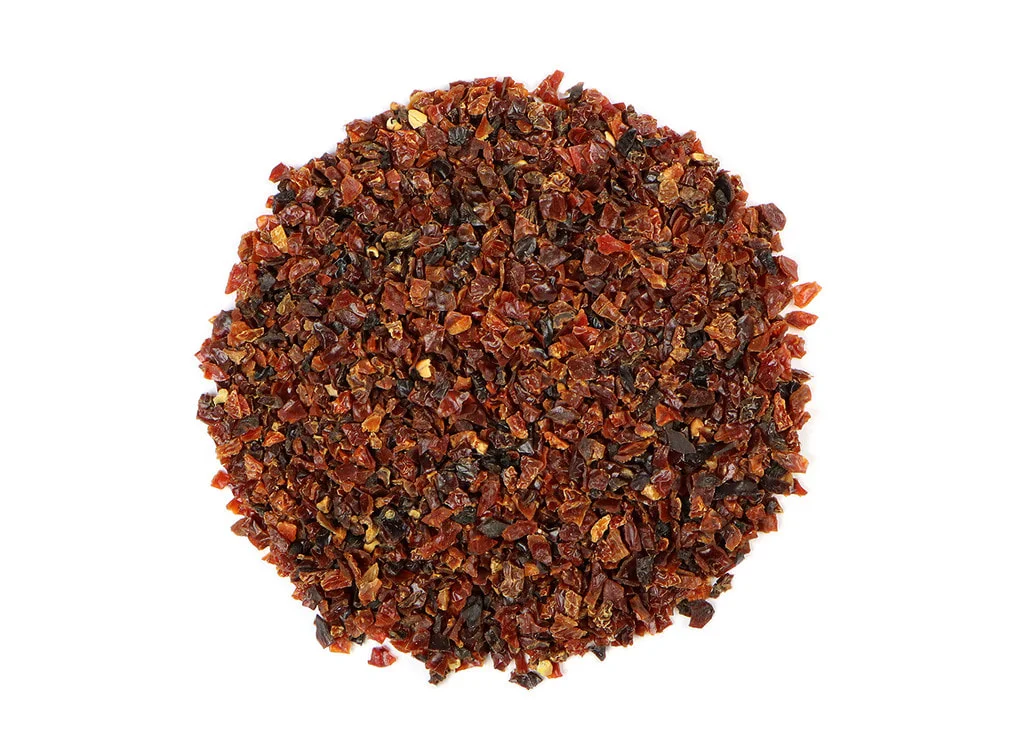Do you know about the healing power of roses? The rose is an ancient herb used for centuries for beauty, emotional support, healing and cleansing. Yes, the lovely flower we give in bouquets and grow in our gardens is a functional and much-loved herb.
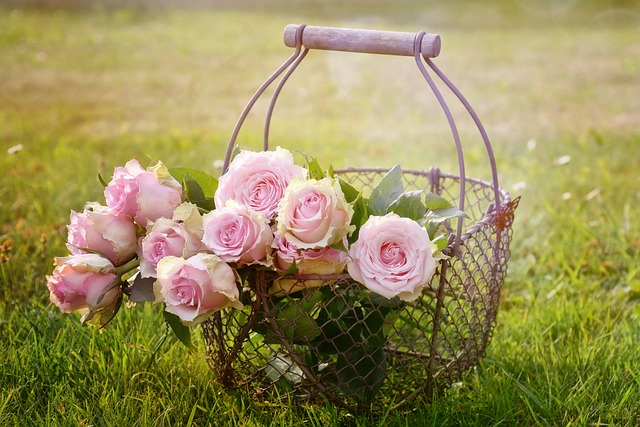
Topical Application
Medicinally, the rose is an astringent– meaning it tones and tightens skin. This is why the extract is so useful in beauty creams and moisturizers. As the rose properties contract and tighten the skin, it keeps moisture in, helping to keep our skin hydrated.
The rose acts as a cooling influence on topical inflammation- including sunburn. Use an infusion of rose tea to wash wounds, soothe sunburn, rashes and bug bites. It is gentle enough for children with their tender skin.
Rose water makes a useful mouthwash and gargle. Pair with other herbs such as peppermint or spearmint for a fresh feel in the mouth. Use your rose water as an eye wash to soothe tired eyes. For an exotic vinegar, steep rose petals in white wine or rice vinegar and use it to make vinaigrette salad dressings.
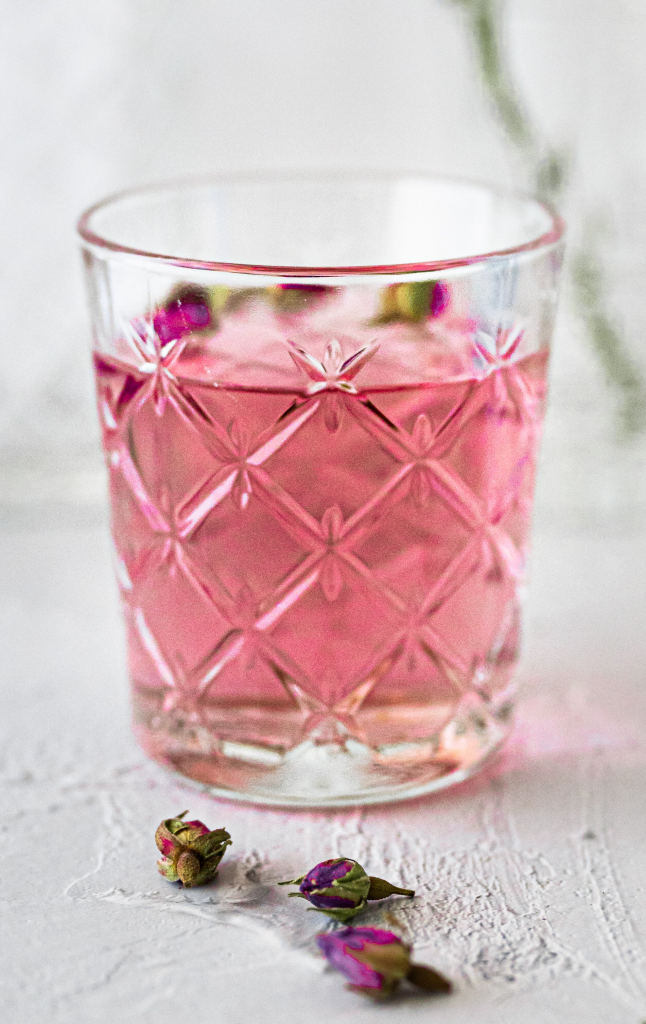
Internal Application
Internally, rose preparations such as tea and tinctures, help cool the body and and promote healing circulation. It is the proper circulation of blood that aids in healing topical wounds, bruising and such. Drinking rose tea while using a rose infused cream or oil will help heal minor wounds and skin irritations.
Rose Hips
What would a discussion of roses be without mentioning rose hips? Rose hips are the fruit of the rose bush. They have seeds inside, just like other fruit. The seeds do have tiny hairs on them and it’s best to cut the fruit open and remove the seeds before using rose hips in tea, jellies, conserves or syrups. You can dry rose hips and the petals to store them for later use.
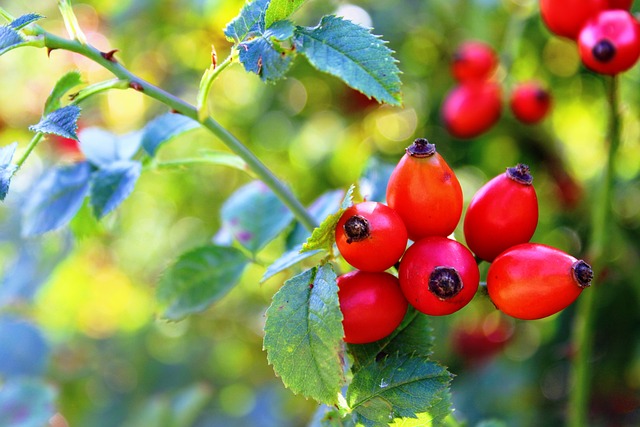
Always, when picking plants or plant parts from nature, make sure they are free of pesticides, herbicides and other contaminants. If you can’t find rose hips near you, you can purchase dried, prepared ones here.
“Wild rose softens the areas that we tense to protect ourselves, unraveling emotional tension patterns that get locked in the body. Rose naturally works in places where ‘flow’ is impeded. Rose unwinds the stuck-ness that is often rooted in old grief, old trauma.”
Rebecca Altman ThornandWonder.com
When choosing roses to use for herbal products, always make sure they are grown without chemical fertilizers, sprays or other contaminants. You don’t want those in you or on you. So, no supermarket or florist roses, please. Either grow your own or get them from someone you know grows them contaminant free.
If you are lucky enough to live where there are wild roses, those are great! Make sure you’re not picking near a major road or railway, or on someone’s private property without permission. Smell and even taste the petals to make sure they’re fragrant and have a flavor you like. If so- go ahead and pick and use them!
Purchase dried roses here.
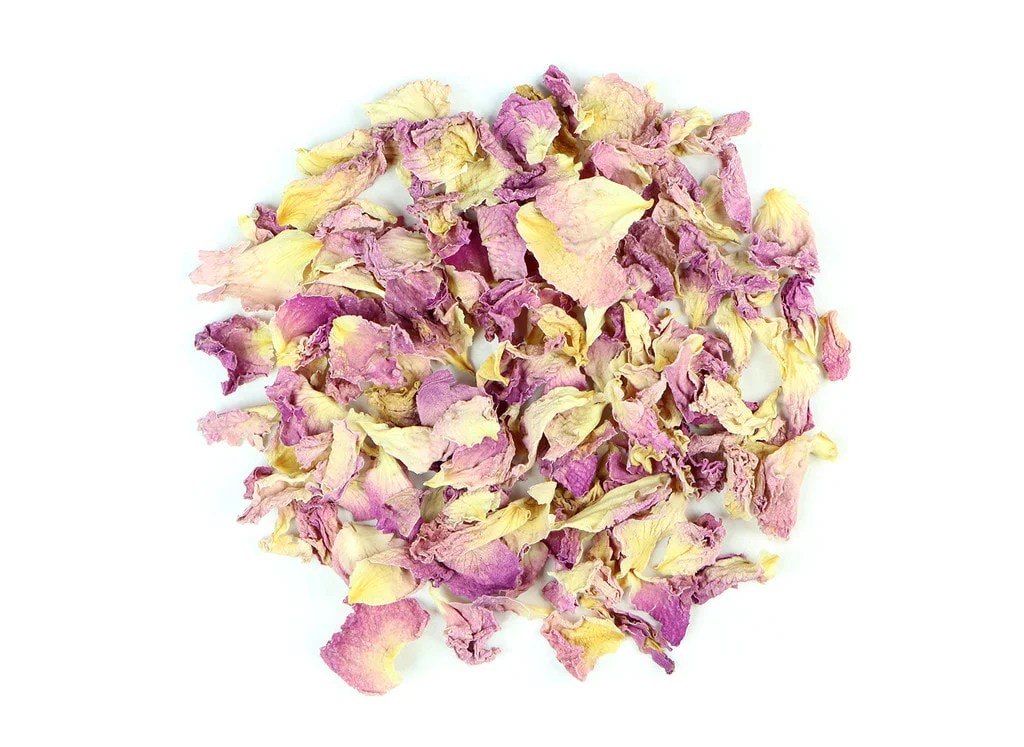
Rose Water
There are several ways to make Rose Water at home.
Infusion
An infusion is as simple as making a cup of tea. Steep the leaves and/or flowers in hot water for an amount of time and the properties of the herb are transferred to the water. For a rose petal infusion, you can use either dried or fresh rose petals and/or small buds.
Simply fill a jar or other vessel that can handle hot water about half full of fresh petals or a quarter full of dried petals. I use a wide mouth canning jar. Pour just boiled water over the petals. Cover and steep for several hours. You’ll notice the petals lose color as the water gains color. When the water is cool and the petals no longer have much color, pour the water off the petals through a strainer into a clean jar, label and date the jar. Enjoy! Store the infusion in the refrigerator and used within 6 months or so.
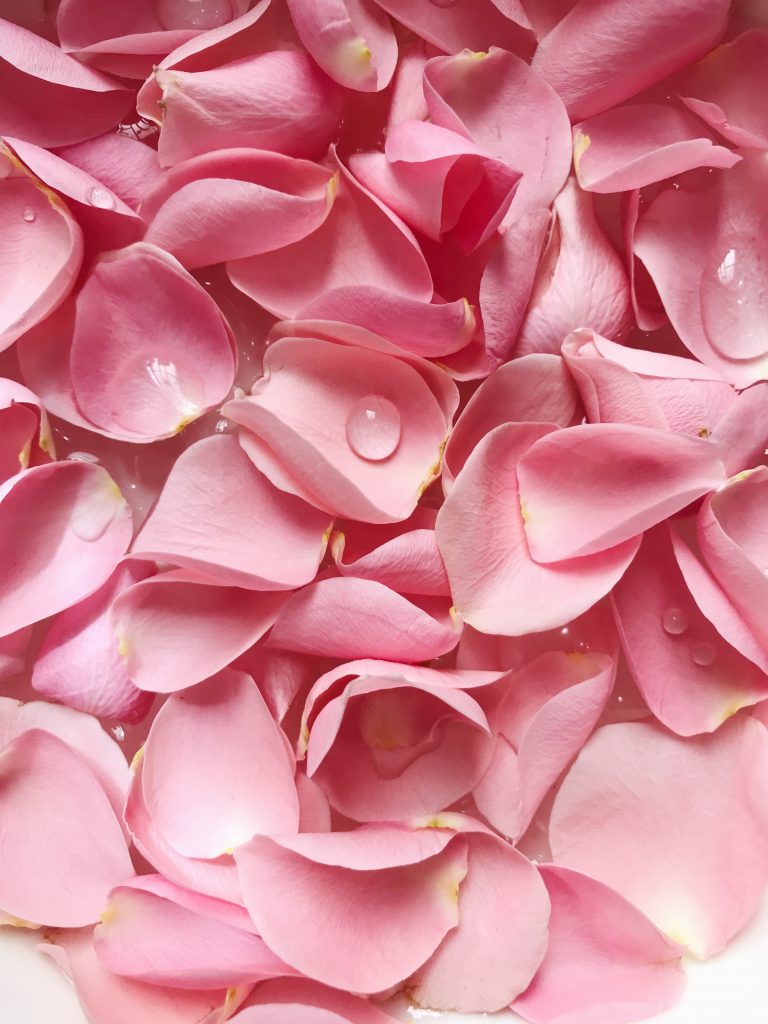
Decoction
A decoction is a way to infuse the properties of an herb into water through simmering rather simple steeping or soaking. I like to use a double boiler for a decoction so the water doesn’t get too hot or perhaps scorch the petals.
Place the petals in a non-reactive pot- stainless steel or glass works well- not aluminum- use about twice the amount of water as fresh petals/buds. If you have 1 cup of fresh petals, use 2 cups water. For dried petals/buds use about one quarter amount of petals to water. 1 cup of dried rose material to 4 cups of water. Bring the water in the pot to a simmer, a gentle simmer is what you want. Let the decoction simmer until the petals lose their color. Shut off the heat and let the decoction cool. Then pour off the water through a strainer into a clean jar or bottle.
Always label your product with contents and date. Store the rose decoction in the refrigerator and use within 6 months.
How to Use Rose Water
Try adding some rose water to lemonade for a refreshing summer drink! Add rose water to cocktails or sparking water.
Place some rose water on a cotton ball and apply to your face. The astringent properties of rose water will make your skin feel smooth and refreshed.
Add rose water, witch hazel and a few drops of your favorite essential oil to a spritzer bottle and use it after a shower or bath for a refreshing feel. Use the spritzer anytime you need a pick me up!
Here’s a relaxing/calming tea using rose water
- Relaxing/Calming Tea that is perfect for an evening cup or anytime you’re feeling frazzled. Share this with your children. It can be served hot or iced. For those with a sweet tooth, go ahead and add some natural sweetener.
- 1 tsp. Chamomile
- 1 tsp. Lemon Balm
- 1 tbsp. rose water- heated if desired
- Add 8 – 12 ounces just boiled water
- Cover and steep 10 minutes
- Enjoy
However you decide to use your new found herbal rose ally I hope you enjoy and experiment with many results.
Here is a place to purchase dried rose petals and rose hips.
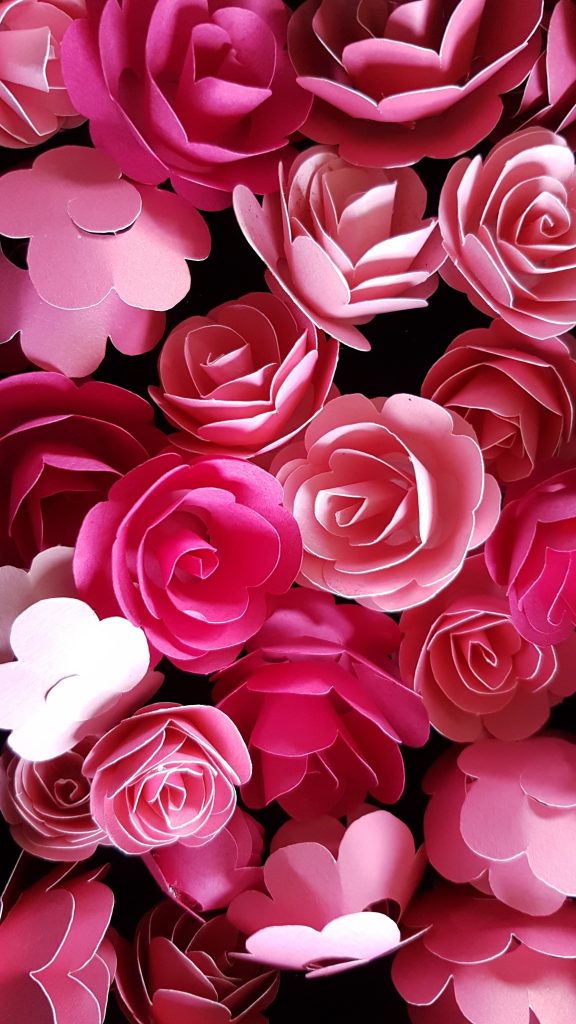
DISCLAIMER– These statements have not been evaluated by the Food and Drug Administration. This product is not intended to diagnose, treat, cure, or prevent any disease. Contact a health professional if you have medical questions.

